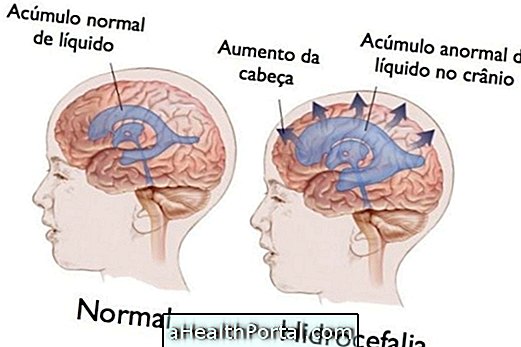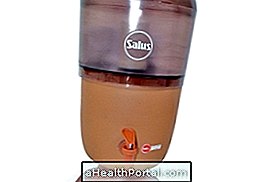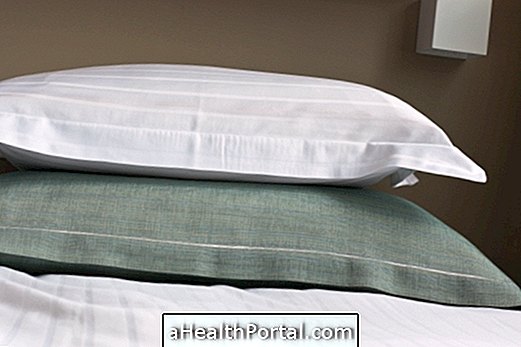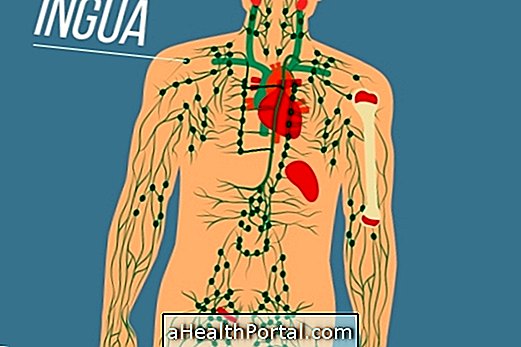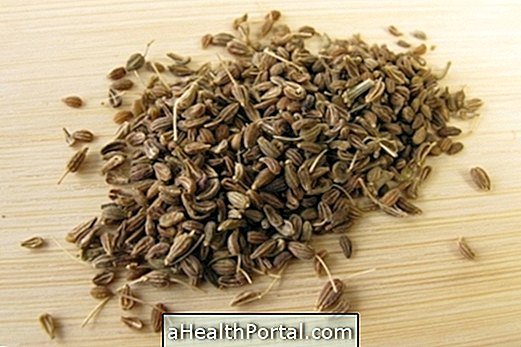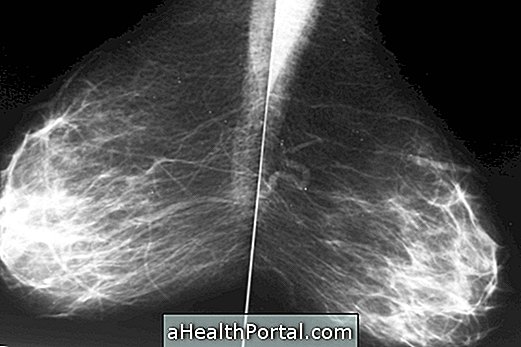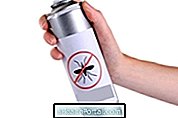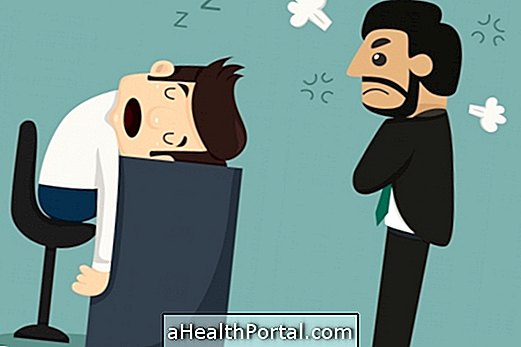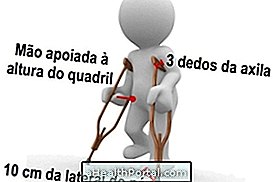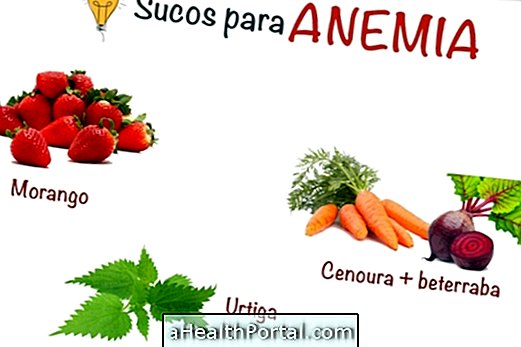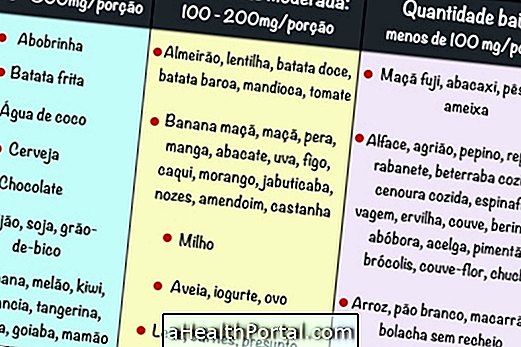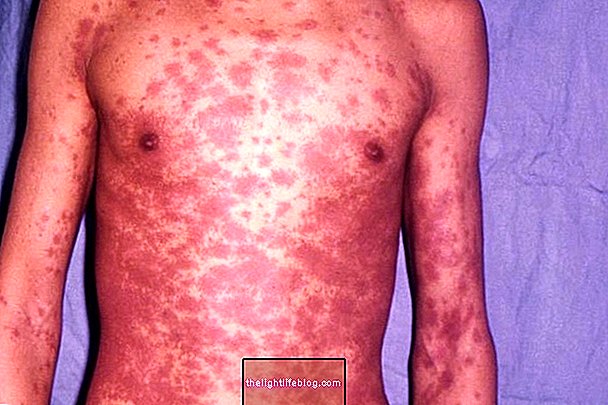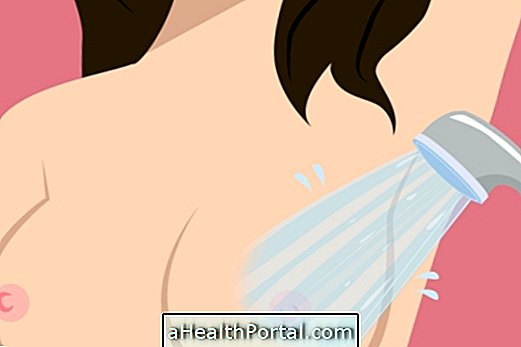Treatment to stop using drugs is usually done in a specialized clinic to ensure that during this period there is no uncontrolled contact with the drug for which the compulsion needs to be treated.
Often, this hospitalization happens completely voluntarily, when the person wants to start the treatment, but in other cases, a compulsory hospitalization can occur, in which relatives or friends use legal means to internalize the person against their will, especially because there is a high risk for that person's life.
Treatment consists of combining drug use and therapy and goes through several stages during which the person will receive all the necessary support from doctors, nurses, psychologists and occupational therapists to do the detox and quit.

For what drugs is it possible to do the treatment
This type of treatment is indicated for people who use drugs that cause physical and / or psychological dependence, such as:
- Cocaine;
- Heroin;
- Crack;
- Marijuana;
- Ecstasy;
- LSD.
Clinics specializing in substance addiction treatment may also help treat alcoholics, but in this case there are also other institutions that target only those who use alcohol and even community support groups known as anonymous alcoholics. See how alcohol abuse treatment is done.
How is the treatment process
During in-patient care at the specialized drug treatment clinic, the team of professionals will work together to find the best combination of treatment for each case. Some of the most commonly used forms of treatment include:
1. Drug Remedies
Drugs used in drug treatment should be used with supervision: 24 hours a day, 7 days a week, so that the person does not get addicted to these drugs.
Initially to combat the fissure that is the imminent desire to use drugs can be used anxiolytic drugs and antidepressants like Diazepam or Clonazepam, for example.
Some examples of drugs against drug use are:
- Marijuana: Rimonabant, a drug against obesity, fluoxetine and Buspirone;
- Cocaine: Topiramate and pergolide, used against seizures and Parkinson's;
- Crack: Risperidone, topiramate, modafinil, which ameliorate withdrawal symptoms;
- Heroin: Methadone and buprenorphine that act on the brain by altering the reward and pleasure system.
In addition to these, it is common for other antibiotic and antiviral medicines to be indicated to fight the health problems that the user has, such as tuberculosis, pneumonia, HIV, syphilis.
Iboga is a medicinal plant, which despite being banned in Brazil, has been used in other countries because it acts detoxifying the body, helping in the treatment against addiction and addiction, but it should not be used exclusively because it does not combat the withdrawal symptoms, it is common for the person to go back to the use of drugs to follow because he does not know how to deal with his life.
2. Attendance with psychologist or psychiatrist
Although family support and help are very important and a key part of drug dependence treatment, monitoring by a psychologist or psychiatrist is also extremely important as it provides useful tools for the person to learn to avoid contact and consumption.
When you stop using drugs you go through a period of abstinence in which you face anxiety and various emotional disorders, so it is important that you have this kind of follow-up so that you can rebuild your self and manage your emotions well, without needing a new dose.

3. Change in behavior
Another important factor in combating drug addiction is behavioral change, as the person should stop meeting with friends who use drugs and go to drug sites so that there is no relapse.
In addition, contact with lighter drugs and alcoholic beverages should be avoided, as they also increase the risk of relapse.
4. Drug use at controlled sites
Not always seen with good eyes, another form of treatment consists of the consumption of the drug inside a specialized place, where the necessary utensils are provided so that the consumption does not lead to the appearance of illnesses.
Usually these places are available in other countries, but the person does not stop using drugs, nor does he use smaller doses, only consumes them in a clean place, where he can have immediate medical assistance if he overdoses.
Recovery clinics for dependents
There are inpatient clinics for chemical dependents spread throughout the country, and hospitalization time varies from 2 to 3 months. It can be partial (only during the day) or full, where the person only leaves the hospital when he or she is fully recovered.
Where to Find Free Treatment for Drugged
There is free treatment for drug addicts in various parts of the country but vacancies are limited. Anyone wishing to be admitted for treatment of substance abuse should seek guidance from their doctor, but some institutions that can help:
Free drug treatment in São Paulo | Free drug treatment in Rio de Janeiro | Free drug treatment in Minas Gerais |
CAPS AD Center Rua Frederico Alvarenga, 259, Parque D. Pedro II, São Paulo Tel: (11) 3241-5460 | CAPS AD Mané Garrincha Rua Professor Manoel de Abreu, 196, Maracanã Tel: (21) 2567-2418 | CAPS AD of Belo Horizonte Rua Luguria, 70, Bandeirantes Tel: (31) 3277-1573 |

The Centos de Atenção Psico Social - CAPS are government institutions that assist in the treatment of drugs that are open all day all day and counts on the presence of a team composed of general practitioner, psychiatrist, psychologist, nurse and social worker .
The monitoring of the dependents in these centers is daily and allows the individual to feel able to work and leisure, thus strengthening their mental health.
One of the many advantages of psychosocial care centers is to replace the patient's need for hospitalization, integrating the patient into the treatment itself and making him responsible to go to the CAPS in his municipality every day.
How long does recovery take
The price of a full stay in a recovery clinic for drug addicts is approximately 5 to 10 thousand reais (90 days), but it is necessary to follow the individual for at least 6 months, which can reach 1 year.
In the first 6 months the person is free of drugs, but in the other 6 months are worked several aspects to avoid a relapse, and so that the person can rebuild his life.
After this period the person may have some relapse, but the important thing is to persevere and move on with the treatment. Sometimes the person will still need a follow-up, having 2 or 3 appointments per year, over a long period.
